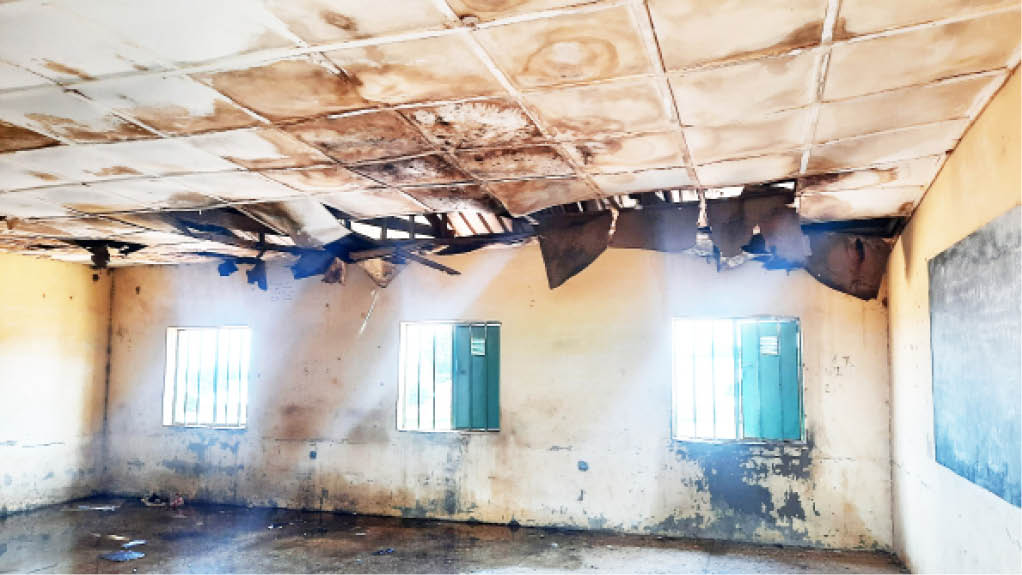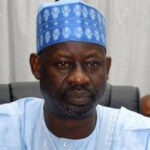Daily Trust visited a Special Education Centre meant for the physically challenged children located in the heart of Gombe, Gombe State and found it in a deplorable condition with poor infrastructure among other challenges.
The Special Education Centre, Gombe was established in 1996, shortly after the creation of the state, to cater for children born with disabilities and need special forms of education.
- BBNAIJA: Why I don’t like Angel, Maria tells Big Brother
- Pupils abducted as bandits break into Islamic school in Katsina
The school, which was meant for about 16 categories of special needs, only attends to visual and hearing impaired children and those with multiple disabilities.
Daily Trust gathered that the school started with 25 pupils who were enrolled in primary one at the premises of Government Arabic College, Gombe.
However, during the administration of late Governor Abubakar Habu Hashidu, it was transferred to its present permanent site near Dukku Motor Park in Gombe metropolis.
The boarding school currently has a population of 606 students, with 200 enrolled in the primary school and over 400 students for the secondary school. The students are accommodated in six blocks of classrooms, one administration block and four hostels, two each for boys and girls respectively.
The school receives students and pupils from across the six states of the North-East geo-political zone.
Challenges facing the school
A source in the school who did not want to be mentioned said in the area of academic staffing, the school is grossly understaffed with only 33 teachers attending to its 606 student’s population. It was gathered that 23 of them are special teachers, including six deaf teachers and seven blind teachers.
In the area of security, only six people are providing security to the vast area occupied by the school, which is partially fenced with some portion destroyed after a heavy rainfall.
It was learnt that only three of the security guards are employed by the government as permanent staff, while the remaining three are volunteers receiving stipends from the school authority.
He said as such, youth mostly from the neighbouring areas usually invade the school to play football, which causes problems for the blind students, and in some cases, some of the female students are allegedly molested.
Despite being a boarding school with over 33 teachers and a handful of other supporting staff, only three staff quarters of two bedrooms were recently built for the school.
The prevailing situation, he said, has made effective management of the school difficult, because, among others, the quarters cannot accommodate the required staff to adequately attend to the students’ needs, especially in the event of an emergency.
While noting that more hostels are needed to separate the deaf and the blind students, he said “it is becoming an issue because the students are always at loggerheads with each other and we are always trying to make peace.”
The source said in the area of staffing, at least 17 more teachers are needed to meet the international standard, in addition to other specialists to teach the students vocational skills, in order to make them self-reliant at the end of their secondary school education.
“We are lacking instructional materials and other vocational tools that will aid their rehabilitation and train them in trades like tailoring, knitting, welding and catering,” he said.
Another source who gave his name only as Ibrahim expressed fear over the fate of the students after completion. “The problem we are facing is, at the end of the day after graduating they will be still idle in the society without any skill but empty certificates, and having come from poor background not all of them can go beyond secondary even with good SSCE results,” he said.
He further said the special education aims to educate and rehabilitate as well as empower the physically challenged people to be self-reliant after finishing school.
Meanwhile, Daily Trust gathered that most of the classes are in deplorable condition, with leaking roofs, broken windows and doors. The classes also were not designed to cater for people with special needs.
Ibrahim explained that at least four blind students are needed in one classroom, but the classes are built without such consideration. “We have to partition them and it is not conducive, as it was interrupting the teachers,” he added.

Until the ongoing project of the borehole being undertaken by the Qatar Foundation, the school had to rely on Gombe State University, which provided it with over 40,000 litres of water weekly.
Also, the school clinic, apart from its deplorable condition, with only two nurses, lacks even the common drugs, as cases of drug stock-out are often recorded. So in case of medical attention, the students have to be taken to a nearby Primary Healthcare Centre in the neighbourhood.
In the area of feeding, it was gathered that the state Ministry of Education provides adequate foodstuff for the students, but students usually complain of poor taste, no thanks to their large number and inadequate ingredients being supplied.
Moral decadence
Apart from huge challenges in the area of infrastructure, instructional and vocational materials, another area of concern is the moral decadence among the students.
It was gathered that some of the deaf students that graduated from the school and other members of the public are usually taking advantage of the vulnerability of the female students to sexually abuse them.
While the unfortunate incident was attributed to poor parental attitude and porous fence, the source said, “Most of these parents usually dumped these children with us without checking on them to see how they are coping.
“So, other deaf students that graduated from the school and some pervert members of the society, are using the school as a breeding ground to get girls for their sexual exploits,” he said.
When contacted, the school Principal, Malam Sa’idu Jijji Gadam, said the school has its challenges but that students graduated from the centre are excelling in their academic activities in higher institutions across the country.
He said the students sat for both WAEC and NECO examinations, being sponsored by the state government.
When this reporter visited the school, about 63 students were sitting for the ongoing WAEC examinations.
According to him, almost 80 per cent of their students that sat for the examination in 2020 scored five credits and above, including in English and Mathematics.
The principal added that about 30 of their ex-students have graduated from universities and some have joined them as academic staff.
He called on the government to provide them with sporting facilities, “because games are an important part of the curriculum, for the students to exercise and present their talent.”
He said, “For now, the only sport we have is football. But we need table tennis, volleyball and other games that will assist critical thinking and help learning.”
Gadam listed ecological problems as another challenge bedevilling the school. It has created a huge valley in the central area and other parts of the school making movement extremely difficult, especially for blind students.
The free movement of people with disabilities is one of the important things that one has to pay attention to. But due to the erosion which is encroaching most parts of the school, our visually impaired students hardly go out after school hours. They remain indoors and it is affecting their rehabilitation,” Jijji complained.
He revealed that the Gombe State office of the Nigeria Erosion and Watershed Management Project (NEWMAP) and the Gombe Goes Green (3Gs) have planted trees in the school premises to curtail the erosion.
The principal added that Governor Muhammad Inuwa Yahaya recently ordered for the renovation of one of the hostels destroyed by a fire, and also constructed a block of classrooms.
When contacted, the Commissioner of Education, Mr Dauda Batari Zambuk, said the government has made several interventions in the school within just two years of the administration.
He added that he has summoned directors in the ministry for a meeting on how to tackle the issues raised.
From Haruna Gimba Yaya, Gombe

 Join Daily Trust WhatsApp Community For Quick Access To News and Happenings Around You.
Join Daily Trust WhatsApp Community For Quick Access To News and Happenings Around You.


